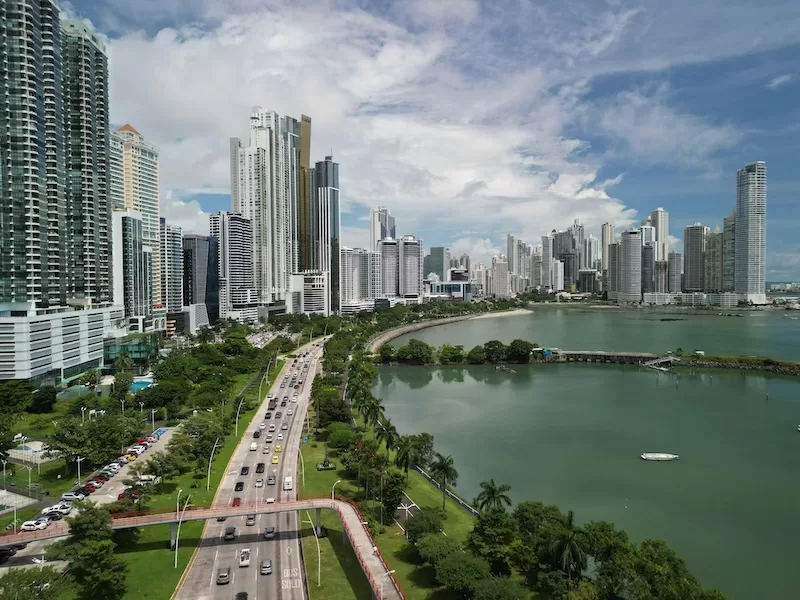For decades, the formula for retirement was simple: work hard, save diligently, and ride out your golden years close to home. But for those paying attention, that model is starting to crack. Inflation is rising, healthcare costs are soaring, and traditional tax burdens show no signs of easing. Now, with remote lifestyles and global mobility more accessible than ever, an increasing number of retirees are looking abroad not just for a change of scenery—but for a serious upgrade in financial freedom.
Creating a tax-free retirement abroad is more than a dream. It’s a strategy. One that requires planning, precision, and a firm understanding of both domestic and foreign tax laws. For those willing to do the work, the payoff is more than just sunshine and sandy beaches. It’s keeping more of what you’ve already earned, and designing a lifestyle that puts you back in control.
Why Taxes Still Matter After You Stop Working
Retirement doesn’t mean the end of taxes. In fact, for many people, it’s when taxation becomes even more significant. Pensions, Social Security, IRA withdrawals, and investment income can all be subject to taxation in your home country. Add state taxes, capital gains, and estate considerations, and your golden years can start to look tarnished.
That’s why creating a retirement strategy that minimizes—or even eliminates—taxation requires more than just a destination with a low cost of living. It demands a structure that supports tax efficiency across borders. And that starts with understanding how your income will be taxed, not just at home, but wherever you choose to live.

Understanding Territorial vs. Worldwide Taxation
The first concept every would-be expat retiree must understand is the difference between worldwide and territorial taxation. Countries that practice worldwide taxation (like the United States) tax citizens and residents on income earned globally. In contrast, countries with territorial tax systems only tax income earned within their borders.
That distinction is crucial. If you’re an American citizen retiring in a territorial tax country like Panama or Costa Rica, your local income may be exempt—but the IRS will still expect its cut unless you take steps to mitigate or eliminate your U.S. tax obligations. For citizens of countries that don’t tax worldwide income, moving to a territorial tax country can mean truly zero tax on foreign-earned income.
Countries That Offer True Tax Relief
Some countries have designed their systems specifically to attract foreign retirees and high-net-worth individuals with tax incentives and low barriers to entry. Panama is a standout, with its Pensionado visa program offering generous benefits and territorial taxation. Costa Rica, with its friendly climate and expat communities, taxes only local income.
Read more like this: Costa Rica: The Largest Blue Zone
Portugal’s now-evolving NHR (Non-Habitual Residency) program has historically allowed new residents to enjoy a decade of tax breaks on certain foreign income. Malaysia’s MM2H (Malaysia My Second Home) program has drawn thousands of retirees seeking lifestyle and tax advantages. And places like the UAE, Monaco, and the Bahamas offer true zero-income-tax environments for residents.
Each of these countries comes with trade-offs—from cost and bureaucracy to cultural integration. But they all offer something increasingly rare: the chance to keep more of your retirement income legally.

Structuring Your Income for Offshore Living
Once you’ve identified a destination with favorable tax treatment, the next step is restructuring how and where your income is generated. This may involve timing withdrawals from retirement accounts to avoid unnecessary taxation and moving investments into tax-efficient vehicles or jurisdictions that align with your long-term goals. Some retirees choose to convert rental income or capital gains into passive, foreign-source income that is either exempt or lightly taxed in their new country of residence.
There are those who set up offshore companies to manage rental properties, intellectual property, or consulting income, shifting tax obligations to jurisdictions with more favorable rules. Others turn to life insurance wrappers or offshore annuities as tools for tax deferral. These strategies aren’t about hiding money—they’re about optimizing it legally. The key is to make sure your income sources and financial vehicles are harmonized with your new tax home while remaining compliant with the rules of the country you’re leaving behind.
These strategies aren’t about hiding money—they’re about optimizing it legally.
The U.S. Challenge: Exit Tax and Compliance
For Americans, retiring abroad comes with unique hurdles. The United States remains one of the only countries that taxes its citizens on worldwide income, regardless of residency. That means they will continue to expect annual tax filings and, depending on your income and structure, possibly tax payments too. The Foreign Earned Income Exclusion and the Foreign Tax Credit offer partial relief, but they do not apply equally to all types of income. Pension payments, IRA distributions, and capital gains often remain fully taxable.
For those seeking total independence from the U.S. tax system, renunciation of citizenship is the final frontier—but one that comes with its own costs. Individuals with significant assets may face an exit tax, calculated on unrealized capital gains. There are also emotional and logistical consequences, including loss of travel privileges, social benefits, and possible reputational risk. This path is not for everyone, but it represents the far edge of the tax optimization spectrum and should only be considered with expert legal and tax guidance.
Read more like this: Why Living Abroad Works
Healthcare, Housing, and the Cost of Living Advantage
It’s no secret that many retirees are drawn abroad by the lower cost of living, but when paired with strategic tax reduction, the financial benefits multiply. Healthcare is often a leading concern. In the United States, out-of-pocket costs can be astronomical, even with insurance. In countries like Thailand, Portugal, and Colombia, private medical care is world-class and surprisingly affordable. Many destinations also offer public systems that accept resident foreigners, often with minimal monthly contributions.
Housing follows a similar pattern. While real estate prices in major U.S. cities continue to climb, properties in expat-friendly enclaves abroad can be purchased outright for a fraction of the cost. Renters too benefit, with comfortable long-term accommodations available for less than what many Americans pay in monthly utilities. This cost advantage means your savings last longer, your income goes further, and your quality of life expands in proportion.
Food, transportation, domestic help, and entertainment costs are often dramatically lower as well. These savings—when compounded over years or decades—represent a form of untaxed income in their own right. They reduce the pressure to withdraw heavily from retirement accounts, which in turn keeps your reported income and your tax liabilities low.

The Role of Second Residency and Citizenship
Residency-by-investment and citizenship-by-investment programs have become mainstream tools for retirees looking to maximize financial sovereignty. Residency options in countries like Panama, Mexico, and Portugal provide access to healthcare systems, real estate markets, and visa-free travel zones, while allowing flexibility around tax residency. Some retirees opt for physical relocation, while others maintain a second residence primarily as a legal fallback.
Second citizenship goes further, offering a full legal identity in a different jurisdiction. This can significantly expand your financial toolkit. Dual citizens often have access to additional banking institutions, investment opportunities, and government protections. They may also gain entry to new social systems—such as national healthcare or pension schemes—which further ease the financial burden of retirement. Whether obtained through ancestry, naturalization, or investment, a second citizenship can future-proof your retirement in ways no portfolio ever could.
Common Pitfalls to Avoid
The road to a tax-free retirement isn’t without hazards. One common misstep is assuming that what worked for someone else will work for you. Tax law is personal. It depends on your income sources, your residency status, your passport, your timing, and your level of compliance. Relying on anecdotal advice from expat forums or social media can lead to costly mistakes. Another error is failing to keep up with reporting requirements. The IRS and other tax authorities have become more aggressive in monitoring foreign accounts and assets. FBAR and FATCA filings are mandatory for U.S. persons with accounts over certain thresholds. Ignoring these obligations can result in severe fines—even criminal penalties.
Some retirees also underestimate the bureaucracy involved in their new country. What begins as a sunny dream can become frustrating if visa processes, property laws, or language barriers aren’t factored into the plan. It’s important to invest time and resources in local legal counsel and licensed financial professionals who understand the nuances of both jurisdictions. The best tax-free retirement strategy is one that’s adaptable, transparent, and built to last.
Read more like this: Your Gateway to Freedom
Tax law is personal. It depends on your income sources, your residency status, your passport, your timing, and your level of compliance.

Designing the Next Chapter
Retiring abroad is more than a change of address. It’s a change in financial philosophy. It’s about replacing obligation with autonomy, and uncertainty with strategy. Creating a tax-free retirement isn’t easy—but it is possible. And it begins with asking the right questions: What matters most to you? What are you willing to give up to gain something better? And how will you build a structure that supports that vision over time?
Done correctly, retiring abroad can free you not just from taxes, but from the mental and emotional weight of living in a system that no longer serves your goals. It invites you to design the next chapter of your life on your own terms, with fewer restrictions and more room to breathe. It allows your money to serve you—not the other way around. This isn’t just a lifestyle upgrade. It’s a declaration of independence. And for those bold enough to make the leap, it can turn retirement from a financial finish line into a global beginning.
Read more like this: Top 10 Countries with the Highest Taxes
Making It Work for You
A second home abroad is both a financial asset and a lifestyle choice. For some, it’s a vacation getaway that doubles as a long-term investment. For others, it’s the first step toward retirement or a new life overseas. Whatever your goal, the key to success is preparation.
Do your due diligence. Visit in person. Build local relationships. Understand the costs and benefits—and be realistic about the responsibilities. With the right plan and mindset, a second home abroad can be more than a dream. It can be a smart, sustainable part of your global future.
Stay Ahead of the Journey!
Subscribe now for the latest in Travel News, International Destinations, Expat Life, Moving Abroad and Digital Nomad opportunities we’ve got your next adventure covered. Don’t miss out!
Contact Author
"*" indicates required fields
Stay Ahead on Every Adventure!
Stay updated with the World News on Escape Artist. Get all the travel news, international destinations, expat living, moving abroad, Lifestyle Tips, and digital nomad opportunities. Your next journey starts here—don’t miss a moment! Subscribe Now!










